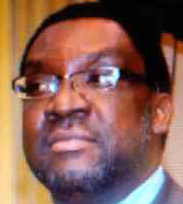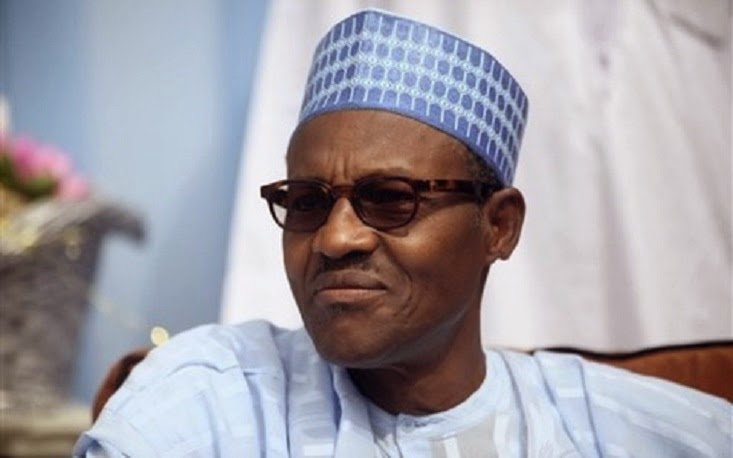He must be disappointed now; crushed even. Chris Umeh, the Secretary General of Africans for an Independent Scotland (AFIS), represented the face of the Nigerian, nay Africans in the United Kingdom; those, who until last Thursday prayed and campaigned for Scottish people to vote ‘yes’ in a referendum organized to determine whether they wanted separation from the rest of the United Kingdom.
While on vacation in England last week, I had sufficient time to follow the arguments from both sides of the divide, especially among Nigerians and Africans who held strong views as to why an independent, oil-rich Scotland held better promise for professionals of African descent as well as graduate students and immigrants who desire legitimate sojourn abroad.
“The journey to manhood begins only when a man leaves his father’s house to build his own homestead,” said Umeh in an article posted on the Scottish Left review website. “We believe in freedom and independence for Africa and are happy to apply that principle for Scotland’s self-determination,” he was also quoted in NigerianWatch, a weekly publication circulated all over Britain. Although African immigrants from 28 African countries reportedly signed on to AFIS, some Nigerians still had their own independent lobby platform, Nigerians4YesScotland, to drum up support for a ‘yes’ to independence vote last Thursday.
So scared was Prime Minister David Cameron in the days leading to the referendum that he practically begged the Scots to save the union, pleading that a Yes vote would amount to an amputation. Although the decision to have the referendum had been taken two years earlier, few London politicians expected it to be problematic, until last month. Who would have contemplated the dismantling of Great Britain and its Union Jack having to be redesigned without the blue sections that represent Scotland?
Advertisement
But it turned out that the UK survived the Scottish independence referendum, with 55 per cent of the voters choosing to remain in the union with England, Wales and Northern Ireland. The Queen’s empire has been spared the type of disintegration it suffered almost a century ago when Ireland became independent. It would seem that the ‘no’ vote against independence, as The Wall Street Journal in its editorial on Monday argued, reaffirms the liberal notion that a decent constitutional order has room enough for people with different, sometimes competing, national stories “and that policy differences aren’t reason enough for fracture.”
I believe that is the same message the Peoples Democratic Party (PDP) was trying to pass across in a message last Friday urging Nigerians to imbibe the Scottish spirit that rejected secession for a collective identity within a union where the English, at 85 per cent of the population are in clear, dominant majority.
The PDP may be right to cite the example of a seemingly united Great Britain to demand a continuous adherence to the non-negotiability of the Nigerian project. What this boastful ‘largest party in Africa’ may not know, however, is that although the United Kingdom may have been saved, the union has been weakened. A price had to be paid to hold it together – the price of a ‘vow’ by Cameron and the leaders of the two main opposition parties to hand substantial new powers to Scotland over tax and welfare.
Advertisement
Could it be that Cameron was subconsciously responding to the notion that beyond oil, the Scots have given vastly more to the English in political and cultural heritage than they extract in welfare benefits? But then, in extending greater autonomy to Scotland and ultimately to the other three entities in the union, the implication could signal a significant re-ordering of UK’s system of governance in a way that it may start to resemble federalism when there is power devolution on matters of tax and expenditure. Should that begin to happen, it would mean that the UK, long accustomed to running its affairs as a more or less centrally administered state from Westminster, may begin to take a cue from Canada, Australia and Nigeria, all Commonwealth territories to which parliamentary system of government was bequeathed but which now operate federal systems.
The question that will become inevitable is: now that Great Britain has decided to stick together, for at least another generation, where is it headed? The sharp division and hostility that characterized the unity rally in Glasgow last Friday evening was symptomatic of a people that hold strongly to their differences even when they are legally bound together.
Yet, what the Scottish question has reinforced is the very idea that has nurtured its nationalistic verve – the notion of European Dream in which small, sovereign states can peacefully co-exist under the European Union umbrella. This is the same idea that is fuelling separatist movements in different parts of Europe, not least in Catalonia, whose parliament intends to hold a referendum on independence from Spain on November 9. With the hard fight of Scottish nationalists last Thursday, Catalonian leaders must feel a lot more emboldened now than the nationalistic fervor that top journalists across the world witnessed in June, when they attended the Global Editors Network annual conference in Barcelona, the capital of Catalonia.
The last has not been heard of a fragmented, perhaps balkanized Europe.
Advertisement
The lesson that the PDP seems to have missed in the Scottish question, therefore, is the people’s subconscious need for their country’s unity to be tested democratically sometimes …in a referendum that is totally free of manipulation and which does not return knotty issues of peaceful cohabitation among federating units to the same politicians whose ineptitude, abinitio, had necessitated a national conference.
Views expressed by contributors are strictly personal and not of TheCable.
Add a comment

